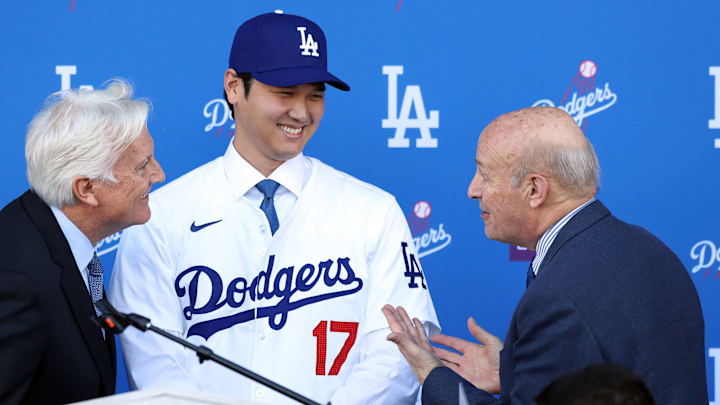The crossover between politics and baseball doesn't happen very often, but when it does happen, it's big. Historically, the building of some baseball stadiums have been taken to a public referendum, Congress took MLB's steroid usage to Washington in 2005, and in 2021, MLB Commissioner Rob Manfred moved the All-Star game from Atlanta following the passage of a voting law in a move that was largely interpreted as a political maneuver.
The Dodgers could be next to catch some heat. California state politicians have zeroed in on LA's efforts after the team signed Shohei Ohtani to a $700 million contract. The problem isn't with the number, though; it's with the deferrals built in that will keep the team from busting through luxury tax ceiling after luxury tax ceiling for the substantial 20-year period that the Dodgers are set to pay Ohtani over.
California State Controller Malia M. Cohen released a statement that urges Congress to get involved in this kind of MLB spending which, at least for the Dodgers, seems to be setting a precedent.
State Controller Malia M. Cohen released the following statement following last month’s announcement that the L.A. Dodgers signed a 10-year, $700 million contract with pitcher Shohei Ohtani. Read the statement on the SCO website at: https://t.co/z58065ChzK pic.twitter.com/H9KOmtApEw
— CA State Controller (@CAController) January 8, 2024
Even California politicians are confused by Shohei Ohtani's Dodgers contract
The unprecedented pay structure in Ohtani's contract dictates that he'll only make $20 million over his next 10 years with the Dodgers, while the other $680 million will be payable until 2043. The goal here was for the team to be able to afford to build around him for 10 years, which they've clearly made good progress on already, while also not completely subjecting themselves to higher and higher tax rates imposed by MLB's luxury tax structure (stretching Ohtani's deal into the deep future lowers his average annual value). As things stand right now, the Dodgers have the second highest taxable amount of dollars in 2024, still running behind Steve Cohen's Mets.
Controller Cohen's statement (no relation) doesn't impose an immediate threat to the Dodgers or any other team who might want to explore the same avenue Ohtani and the Dodgers took. It's simply a call to action. However, the chief concern in Cohen's press release — that Ohtani would move back to Japan after his time in MLB is up, effectively outmaneuvering California tax on his money — could potentially cause some problems for MLB as a whole down the line.
As calls from fans for an actual salary cap, or for money to be regulated more effectively in baseball, have emerged following Ohtani's signing, even politicians are throwing their say into the mix. If massive deferrals become a trend, we could hear more of that as time goes on.
